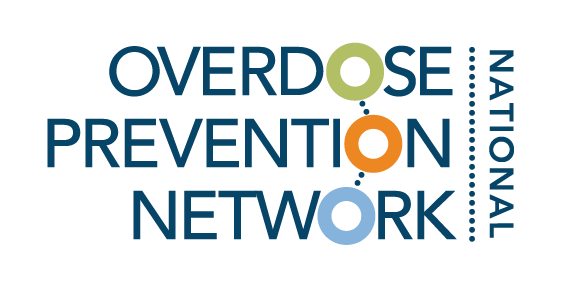
Resource Library
Toolkits, guides, and other resources vetted by experts in overdose prevention.
Filter by category and tags, or search by keyword (ex. COVID-19, harm reduction).
Safe Rx Mendocino
This campaign provides stories and resources to help their community overcome high rates of substance use. Check out their resources on treatment options, how to get naloxone, and watch stories of community members in recovery.
Best Practices for Providers Who Inherit Patients on Opioids
The California Department of Public Health (CDPH) has released an action notice for providers that details best practices to consider and offers supportive resources to use when inheriting patients on opioid therapy due to facility closures and other causes.
Public Health Threats & the US Constitution: What Responders Need to Know About Equity, Law, and Public Health Authority
This free training includes an overview of laws that affect how government can respond to health crises in ways that advance rather than hinder health equity.
Substance Use Navigator Training 101
Understanding mental health concerns and dual diagnosis can be challenging. This training helps you navigate complex behavioral health cases to improve your skills as a SUN.
Rapid Adoption of Low-Threshold Buprenorphine Treatment at California Emergency Departments Participating in the CA Bridge Program
This research from CA Bridge explains how low-threshold ED buprenorphine treatment implemented with a harm reduction approach and active navigation to outpatient addiction treatment was successful in achieving buprenorphine treatment for opioid use disorder in diverse California communities.
Guidance on Handling the Increasing Prevalence of Drugs Adulterated or Laced with Fentanyl
To help remediate the impacts of the rising rates of drugs adulterated or laced with fentanyl, the National Council Medical Director Institute (MDI) issued this new publication.
Overdose Prevention Resources During Climate Disasters
The Fall 2021 COPN Convening focused on overdose prevention strategies during disasters including fires, power outages, and the ongoing threat of COVID-19.
Let's Talk Marin
RxSafe Marin is committed to supporting youth and listening to youth voices. They are involved in several youth initiatives, including partnering with other community coalitions to distribute Let’s Talk, a resource for parents and teens to begin navigating conversations about substance use.
To Combat Meth, California Will Try A Bold Treatment: Pay Drug Users To Stop Using
This article describes how California is taking an unusual approach to tackling the rising rates of fatal drug overdoses: paying drug users not to use drugs.
California Opioid Overdose Surveillance Dashboard
This dashboard and data is the result of ongoing collaboration between the California Department of Public Health (CDPH), Office of Statewide Health Planning and Development (OSHPD), Department of Justice, and the California Health Care Foundation.
Law Enforcement's Role in Tackling the Opioid Epidemic
This video's purpose is to increase awareness and reduce stigma surrounding substance and opioid use disorders and discuss laws and regulations pertaining to substance use and mental health services.
COVID-19 Resources for People Who Use Drugs and Other Vulnerable Communities
This toolkit provides informative fact sheets, tips, and guidance for people who use drugs, engage in sex work, those who are unhoused, and the stakeholders who work with these communities.
Federal Rental Assistance Toolkit
The California Department of Health Care Services (DHCS) released a Rental Assistance Toolkit to ensure that state and local entities are aware of the many programs available to provide emergency rental assistance.
Study: Transition from injecting opioids to smoking fentanyl in San Francisco, California
This study poses questions for what will happen in the future regarding the trends of infectious diseases and discusses the transition from injected drugs to smoking fentanyl.
Excess Overdose Deaths in California Data Brief
OPI research scientists have tracked the rise in overdose deaths in California over the past five years. This data brief demonstrates that the opioid epidemic remains a significant, complex, and evolving public health issue.
Opioids III: The Sacklers
John Oliver explains how the Sackler family has been handling lawsuits related to the opioid crisis, how hard they’ve been fighting to defend their name, and why you should judge the situation for yourself.
Black History Month 2022: Policy Action to Support Black Health and Wellness
This brief recommends policies to end the systemic and structural racism that continue to prevent Black Americans from achieving optimal health.
Free NARCAN Nasal Spray for Eligible Schools
This fact sheet provides information about the Emergent BioSolutions Free Goods Program, which is offering free units of NARCAN® to high schools, colleges, and universities.
5 Ways to Create Compelling Messages about Childhood Trauma Using Data
This article provides five ways to strategically present data regarding childhood trauma. These five tips for presenting numbers aim to advance efforts to reduce adversity, promote resilience and improve health outcomes.
TED, “How childhood trauma affects health across a lifetime”
Childhood trauma isn’t something you just get over as you grow up. Pediatrician Nadine Burke Harris explains that the repeated stress of abuse, neglect and parents struggling with mental health or substance abuse issues has real, tangible effects on the development of the brain. This unfolds across a lifetime, to the point where those who’ve experienced high levels of trauma are at triple the risk for heart disease and lung cancer. An impassioned plea for pediatric medicine to confront the prevention and treatment of trauma, head-on.




















